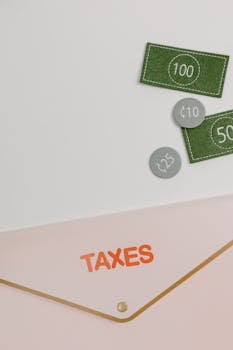Credit vs Debit Which One Is Better for Your Needs
As an Amazon Services LLC Associates Program participant, we earn advertising fees by linking to Amazon, at no extra cost to you.
Advantages and disadvantages of credit cards
Here’s a breakdown of the pros and cons of using credit cards versus debit cards. This will help you decide which fits your needs best.
- Credit cards offer borrowing power. You can spend beyond your current balance, which is great for emergencies.
- They help build your credit history. Responsible use can lead to a higher credit score over time.
- Rewards programs can save you money. Earn points or cash back on purchases, but be cautious of overspending.
- Interest rates can be high. If you carry a balance, you may end up paying a lot in interest.
- Debit cards limit spending to available funds. This can help you stick to a budget and avoid debt.
- They don’t build credit history. Using a debit card won’t improve your credit score at all.
- Less fraud protection compared to credit cards. If your debit card is compromised, it can take longer to recover funds.
- Fees may apply for overdrafts. Some banks charge fees if you spend more than your balance.
Strategic Approaches: Using Both Credit and Debit Cards
Most people think you have to choose between credit and debit cards. I believe using both can be a smart strategy. It’s that simple!
Debit cards help keep spending in check. They only let you spend what you have. This promotes financial discipline and prevents debt.
Credit cards, on the other hand, offer perks like rewards and help build credit history. Many consumers overlook this advantage. Using a credit card responsibly can boost your credit score.
By combining both, you can enjoy the best of both worlds. Use debit for everyday expenses and credit for larger purchases. This way, you control your budget while benefiting from rewards.
Some experts suggest setting a limit on credit card spending. This can prevent overspending while still allowing access to rewards. It’s a win-win!
According to Amanda Cameron from Patriot Software, “Understanding how debits and credits work can help keep your books error-free.” This applies to personal finance too!
Another perspective is that focusing solely on debit can limit your financial growth. While it’s great for discipline, it doesn’t help build credit. That’s why integrating credit is key.
Finally, consider exploring the role of rewards programs. They can lead to significant savings if used wisely. But, don’t forget to pay your balance in full to avoid interest!
In conclusion, a balanced approach using both cards can unlock financial potential. It’s about making informed choices that suit your needs.
Understanding the Key Differences Between Credit and Debit Cards
Many people think credit cards are the best choice for managing finances. I disagree, as debit cards can provide better control over spending. With debit cards, you only spend what you have. This prevents falling into debt traps.
Credit cards offer perks like rewards and building credit. But, they can lead to overspending if not managed well. I believe using debit cards encourages financial discipline. You can’t spend beyond your means.
Most folks overlook the importance of credit scores. Using credit cards wisely can boost your score, opening doors for loans and better rates. However, debit cards don’t help build credit at all.
Many financial experts suggest a mix of both cards. But I think sticking primarily to debit cards is safer for budgeting. You can still have a credit card for emergencies, but keep it in check.
Also, consider rewards programs. They sound great, but they require responsible use. If you can’t manage credit well, those rewards might not be worth it.
In conclusion, choose what fits your financial habits. If you need strict control, go for debit. If you want to build credit, use credit wisely. But always be cautious!
How Credit Cards Build Your Credit Score
Most people believe that credit cards are just a way to spend money. But I think they’re a powerful tool for building your credit score. A solid credit score opens doors to lower interest rates and better loan options.
Credit utilization is key. Keeping your balance below 30% of your limit shows lenders you’re responsible. According to Ram Subramanian from Discover Financial Services, “Understanding your credit report is critical in managing your finances.”
Many think debit cards are safer since they use available funds. However, they don’t contribute to your credit history. This means you miss out on opportunities to improve your credit score.
Some argue that using credit cards can lead to debt. Sure, if you’re not careful! But with disciplined spending, credit cards can enhance your financial profile. I’ve seen friends boost their scores just by using their cards wisely.
Consider this: credit cards often come with rewards. These perks can save you money in the long run. It’s that simple! By leveraging rewards, you can maximize your spending power.
Many financial experts recommend a balanced approach. Using both credit and debit cards can provide flexibility. But remember, credit cards require responsible management to avoid pitfalls.
In conclusion, credit cards are more than just a payment option. They’re a pathway to financial freedom if used wisely. Want to learn more? Check out the insights from Discover Financial Services.
The Financial Discipline of Using Debit Cards
Many believe debit cards are the best for maintaining financial discipline. I disagree because they can limit your financial flexibility. When you use a debit card, you can only spend what you have. This can feel restrictive, especially in emergencies.
Credit cards, on the other hand, offer a safety net. They allow for larger purchases and can help in building credit. But, if you don’t manage them well, they can lead to debt. It’s a tightrope walk.
Most people think using debit cards is safer. But I think credit cards can be just as safe when used responsibly. They come with fraud protection features that debit cards often lack. This can save you from significant losses.
Some suggest a hybrid approach. Use debit for daily expenses and credit for larger purchases. This strategy helps manage cash flow while still enjoying the perks of credit. It’s about finding balance.
According to Amanda Cameron from Patriot Software, “Understanding how debits and credits work can help keep your books error-free.” This applies here too. Knowing how to use both cards effectively can enhance your financial health.
There’s also the misconception that debit cards help with budgeting. I think it’s not that simple. Budgeting is more about mindset and discipline than the card you use. You can overspend with a debit card just as easily if you’re not careful.
Understanding your financial habits is key. This knowledge will guide you in choosing the right card for your needs. Whether you lean towards debit or credit, what matters is how you use them.
Impact of Credit Utilization on Credit Health
Understanding how credit utilization affects your credit score can be a game changer for financial health.
- Credit utilization is the ratio of your credit card balances to credit limits. Keeping this ratio below 30% is ideal for a healthy score.
- High utilization can negatively impact your credit score. It signals to lenders that you may be over-reliant on credit.
- Paying off balances in full each month can improve your utilization ratio. This practice shows lenders you manage credit responsibly.
- Using debit cards won’t affect your credit utilization. They draw from available funds, keeping you out of debt but not boosting your credit score.
- Consider a mix of credit and debit for optimal financial health. This strategy can help you manage spending while building credit.
Sep 4, 2024 … Take time to evaluate your needs, the pros and cons of both cards, and choose what is best for you. Debit Cards. A debit card is linked …
To access money from an ATM, you need an. ATM card or debit card linked to your bank. (or credit union) account. Each bank and most credit unions have their own …
… credit and debit card service. Online domestic credit/debit card tuition … Review each plan carefully and enroll in the one that best meets your needs.
Exploring Rewards Programs: Are They Worth It?
Many people think rewards programs are just a gimmick. I believe they can be fantastic tools for savvy spenders. If used wisely, they can offer real benefits.
Credit cards often come with enticing rewards. Cash back, travel points, and discounts are common perks. But, you have to pay attention to the terms. Some cards have high fees or interest rates that can negate the rewards.
On the flip side, debit cards usually lack these incentives. They keep your spending in check, but where’s the fun in that? I think it’s a missed opportunity for those who want to maximize their spending.
Consider using a credit card for larger purchases to rack up points. Then, pay it off immediately to avoid interest. It’s that simple!
According to Amanda Cameron from Patriot Software, “Understanding how debits and credits work can help keep your books error-free and give you a better awareness of your business’s financial health”. This applies to personal finance too!
Another approach? Use both card types strategically. Debit cards for daily expenses and credit cards for bigger buys can balance discipline with rewards. It’s about finding what works for you.
Building credit through rewards programs is a smart move. It’s not just about spending; it’s about spending wisely. By managing your credit card usage carefully, you can enjoy rewards while boosting your credit score.
Don’t overlook the long-term benefits of rewards programs. They can lead to significant savings over time. Just remember, responsible use is key!
Pro tips for managing debit card spending
Here are some practical tips to help you manage your debit card spending effectively.
- Set a monthly budget. This keeps your spending in check and helps avoid overdrafts.
- Use alerts for transactions. Get notifications for every purchase to track your spending in real-time.
- Limit ATM withdrawals. Withdraw only what you need to avoid impulse spending.
- Review your statements regularly. This helps catch any unauthorized transactions quickly.
- Consider using cash for discretionary purchases. It’s easier to see how much you’re spending when you physically hand over cash.
- Use budgeting apps. They can help you categorize and monitor your spending habits.
- Avoid linking your debit card to subscriptions. This prevents unexpected charges that can disrupt your budget.
- Know your bank’s fees. Be aware of any charges for overdrafts or non-network ATM withdrawals.
Recovering from identity theft is a process. Here's step-by-step advice that can help you limit the damage, report identity theft, and fix your credit.
PLEASE NOTE: If you attended more than one Alamo College, your single request-and-transcript will include all academic credit. You only need to request more …
… credit and debit card service. Online domestic credit/debit card tuition … Review each plan carefully and enroll in the one that best meets your needs.
Credit/Debit card (Visa/MasterCard/Discover). For security … All graduate programs require a resume or CV to be uploaded within your application.
Instructions for Graduate Applicants – Graduate Admissions – The …
As an Amazon Services LLC Associates Program participant, we earn advertising fees by linking to Amazon, at no extra cost to you.
Can I build credit with a debit card?
No way! You can’t build credit with a debit card. Debit cards pull directly from your bank account, so they don’t report to credit bureaus.
Many people think debit cards are a safe way to manage finances. I argue that they miss out on the chance to build a credit history. Credit cards, when used wisely, can boost your credit score.
Consider this: using a credit card responsibly—like paying off your balance on time—can enhance your credit profile. Credit scores affect your ability to get loans or even rent an apartment.
So, if you want to build credit, stick with credit cards. Just remember to manage them well to avoid debt traps!
As Ram Subramanian from Discover Financial Services said, “Understanding your credit report is critical in managing your finances.”
Which card is safer for online purchases?
Many people believe credit cards are safer for online purchases because they offer fraud protection. I think debit cards can be just as safe, especially with features like instant alerts and the ability to freeze your account.
Credit cards often have better liability policies. But, if you misuse them, you could end up in debt. That’s a risk!
Using a debit card limits your spending to what’s in your account. This can help you avoid overspending and accumulating debt. Plus, if your debit card is compromised, the funds can be restored relatively quickly.
However, you should always monitor your accounts closely. According to Jessica Velasco from Kount, “Understanding the difference between credit and debit chargebacks can be challenging, but mastering these concepts is essential for financial efficiency.” So, staying informed is key!
Ultimately, both cards have their pros and cons. I believe using a combination of both can provide the best balance of safety and financial control.
Are debit cards better for budgeting?
Many people swear by debit cards for budgeting. Sure, they limit spending to available funds, which helps avoid debt. But I believe this strictness can be a double-edged sword.
Credit cards, when used wisely, can actually enhance financial flexibility. They allow for larger purchases and can even provide rewards. It’s that simple!
Most financial experts advocate for using debit cards to avoid overspending. However, I think a balanced approach is better. Mixing both cards can offer the best of both worlds.
Consider this: with a credit card, you can track expenses and build credit history. This can open doors for future loans and better rates. According to Amanda Cameron from Patriot Software, understanding these tools is key to financial health.
So, while debit cards are great for day-to-day spending, don’t underestimate the power of credit cards. They can be beneficial for budgeting if managed properly!
What happens if I don’t pay my credit card bill?
Not paying your credit card bill can lead to serious consequences. First off, you’ll rack up late fees that can skyrocket your balance. It’s that simple: late payments can damage your credit score.
Most people think missing a payment is a minor issue, but I believe it’s a slippery slope. Your credit score can drop significantly, affecting future loans and interest rates. A low score can haunt you for years!
Then there’s the interest. If you don’t pay on time, your card issuer might hike your interest rate. This means you’ll pay even more in the long run.
Some folks argue that credit cards offer flexibility, but I think that flexibility can lead to debt traps. Managing your payments is key to avoiding financial strain.
Lastly, if you keep ignoring your bills, your account could go into collections. This can result in legal action or wage garnishment. Trust me, it’s not worth it!
How do rewards programs work?
Rewards programs can be a fun way to earn benefits while spending. Most people think they’re just about cashback or points. I believe they can be much more than that!
Using a credit card with a rewards program can turn everyday purchases into savings on travel or shopping. According to Patriot Software, “Understanding how debits and credits work can help keep your books error-free.” This applies here, too; knowing how to maximize rewards can boost your financial health.
But here’s the twist: many think rewards are only for extravagant spenders. I think anyone can benefit from them! Even small, regular purchases can accumulate points. Just be cautious. Overspending to earn rewards can lead to debt.
To make the most of rewards, set a budget. Stick to it! This way, you enjoy the perks without risking your finances. And don’t forget to read the fine print on rewards programs. Some have expiration dates or limits.
In the end, using rewards programs wisely can enhance your spending experience. They can offer significant benefits if managed correctly!
What fees should I watch out for with debit cards?
Debit cards can be handy, but they come with their own set of fees. Watch out for overdraft fees! If you spend more than your balance, you could be charged a hefty fee.
Another common fee is the ATM withdrawal fee. Many banks charge you if you use an ATM outside their network. It’s that simple—stick to your bank’s ATMs to avoid these charges.
Some debit cards also have monthly maintenance fees. This can sneak up on you if you don’t keep a minimum balance. Always read the fine print!
Most people think debit cards are fee-free, but I believe you should always check your bank’s fee schedule. Being informed can save you money!
Lastly, international transaction fees can hit hard if you travel. I recommend checking with your bank before you jet off. According to Jessica Velasco from Kount, “Understanding the difference between credit and debit chargebacks can be challenging, but mastering these concepts is essential for financial efficiency” source.
Credit scores are a big deal. They can open doors to loans and even affect your insurance rates. While many think debit cards are a safe choice, they don’t help you build credit.
Most people believe using credit cards is risky. But I think they’re essential for financial growth because responsible use can boost your score. Just remember, it’s all about managing that balance!
It’s that simple! Use credit cards wisely to unlock better financial opportunities. As Ram Subramanian from Discover Financial Services said, “Understanding your credit report is critical in managing your finances.”
Credit cards are more than just plastic. They give you borrowing power that can help in emergencies. Plus, they build your credit history, which is super important for future loans.
Many people think debit cards are safer. But without the chance to build credit, you might miss out on better rates later. I prefer using credit cards wisely to enjoy their benefits.
Using both cards can be a smart move. I use a debit card for daily expenses and a credit card for bigger purchases. This way, I manage my budget while still building my credit.
Check out Patriot Software for more insights on how credit can impact your financial future. According to Amanda Cameron, “Understanding how debits and credits work can help keep your books error-free.”
Many folks think credit cards are the way to go for flexibility. But I believe debit cards are the real champions of financial discipline. They only let you spend what you have, which keeps you from drowning in debt.
Credit cards can be tempting. They offer rewards and perks, but they can lead to overspending. As Amanda Cameron from Patriot Software puts it, “Understanding how debits and credits work can help keep your books error-free.” That’s why I prefer sticking to my debit card for daily expenses.
People often overlook that debit cards help create a strict budget. Sure, credit cards can build your credit score, but they might also trap you in a cycle of debt. A balanced approach? Use debit for everyday purchases and credit for emergencies. This way, you enjoy the best of both worlds!
Many people think sticking to one card type is best. But I believe using both credit and debit cards is smarter. It allows you to control spending while taking advantage of rewards.
Credit cards can help build your credit score, which is huge for future loans. Debit cards keep you disciplined since you only spend what you have. It’s that simple!
By strategically using both, you can enjoy the perks of credit without falling into debt traps. Plus, you get to manage cash flow effectively.
As Amanda Cameron from Patriot Software said, “Understanding how debits and credits work can help keep your books error-free.” So, let’s use that knowledge to our advantage!
Exploring rewards programs with credit cards can lead to savings, but remember to pay off your balance. Otherwise, the interest can outweigh the benefits.
Many folks think rewards programs are all about free stuff. I believe they can be a trap if not handled wisely. Sure, they offer savings and perks, but they can also encourage overspending.
Using credit cards for rewards is tempting. But if you’re not paying off the balance, those rewards can quickly vanish in interest fees. It’s that simple!
Instead, consider a balanced approach. Use credit for big purchases to rack up points, but keep your debit card handy for daily expenses. This way, you enjoy the benefits without falling into debt.
According to Amanda Cameron from Patriot Software, “Understanding how debits and credits work can help keep your books error-free.” This applies to personal finance too!
Let’s not forget about the long-term impact. Building credit responsibly can open doors to better loans and rates. Knowing how to use rewards programs wisely is key to financial freedom.
So, think twice before diving into those flashy credit card offers. Responsible use is the name of the game!












